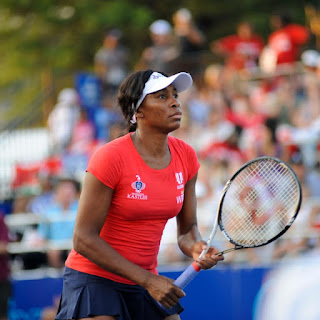Diet for anemia
There are various factors that can cause anaemia. Sometimes a lack of iron or certain vitamins such as folic acid and vitamin B12 can result in anaemia.
1) Diet for iron deficiency anemia
Not eating foods with enough iron is sometimes the cause of iron-deficiency anaemia. Some people who have a poor diet with just enough iron to get by, may slip into anaemia if other factors develop
The best sources of iron come from animal products - mainly red meat. However, we get a good proportion of iron from non-animal sources too.
Iron sources include:
• Eggs.
• Cereal and cereal products
• Wholegrain bread
• Nuts and seeds - for example, hazelnuts, macadamia nuts, peanuts, pecans, walnuts, sesame seeds, sunflower seeds, pine nuts.
• Green leafy vegetables - for example, broccoli, spinach, watercress, kale.
• Beans and pulses - for example, baked beans, peas, lentils, chickpeas, black-eyed beans, kidney beans.
• Dried fruit - for example, raisins, apricots, prunes, currants, figs.
• Miscellaneous - for example, plain (dark) chocolate, cocoa powder, mango chutney, cherries in syrup, ginger nut biscuits, pastry, curry powder.
2) Diet for folic acid deficiency
Folic acid is a vitamin and is needed to make new cells in the body, including red blood cells. The body does not store very much folic acid. You need a regular fresh supply to keep healthy. A normal balanced diet contains enough folic acid.
Good sources of folic acid include:
• Fresh, raw or cooked Brussels sprouts, asparagus, spinach, kale, broccoli, spring beans, green beans, cabbage, cauliflower, okra, lettuce, parsnips, peas, bean sprouts.
• Cooked black-eyed beans and chickpeas.
• Breakfast cereals (with folic acid added to them).
• Liver (note, pregnant women should avoid liver).
• Kidneys, yeast and beef extracts.
• Brown rice.
3) Diet for vitamin B12 deficiency
Vitamin B12 is essential for life. It is needed to make new cells in the body such as the many new red blood cells which are made every day. A normal balanced diet contains enough vitamin B12. A lack of vitamin B12 leads to anaemia and sometimes to other problems such as nerve damage and heart disease.
The following foods are good sources of vitamin B12. Including these foods regularly in the diet should help to prevent vitamin B12 deficiency:
If you are vegan, aim to include foods that are fortified with vitamin B12, at least three times a day. If these foods are not consumed in adequate amounts, the Vegan Society recommends a vitamin B12 supplement of 10 micrograms per day.
1) Diet for iron deficiency anemia
Not eating foods with enough iron is sometimes the cause of iron-deficiency anaemia. Some people who have a poor diet with just enough iron to get by, may slip into anaemia if other factors develop
The best sources of iron come from animal products - mainly red meat. However, we get a good proportion of iron from non-animal sources too.
Iron sources include:
- Offal: liver and kidneys contain high levels of iron (note pregnant women should avoid liver).Red meat and also poultry and pork
- Fish and shellfish - for example, octopus, sardines, pilchards, crab, anchovies, shrimps, mussels, tuna, mackerel, bass, trout.
• Eggs.
• Cereal and cereal products
• Wholegrain bread
• Nuts and seeds - for example, hazelnuts, macadamia nuts, peanuts, pecans, walnuts, sesame seeds, sunflower seeds, pine nuts.
• Green leafy vegetables - for example, broccoli, spinach, watercress, kale.
• Beans and pulses - for example, baked beans, peas, lentils, chickpeas, black-eyed beans, kidney beans.
• Dried fruit - for example, raisins, apricots, prunes, currants, figs.
• Miscellaneous - for example, plain (dark) chocolate, cocoa powder, mango chutney, cherries in syrup, ginger nut biscuits, pastry, curry powder.
2) Diet for folic acid deficiency
Folic acid is a vitamin and is needed to make new cells in the body, including red blood cells. The body does not store very much folic acid. You need a regular fresh supply to keep healthy. A normal balanced diet contains enough folic acid.
Good sources of folic acid include:
• Fresh, raw or cooked Brussels sprouts, asparagus, spinach, kale, broccoli, spring beans, green beans, cabbage, cauliflower, okra, lettuce, parsnips, peas, bean sprouts.
• Cooked black-eyed beans and chickpeas.
• Breakfast cereals (with folic acid added to them).
• Liver (note, pregnant women should avoid liver).
• Kidneys, yeast and beef extracts.
• Brown rice.
3) Diet for vitamin B12 deficiency
Vitamin B12 is essential for life. It is needed to make new cells in the body such as the many new red blood cells which are made every day. A normal balanced diet contains enough vitamin B12. A lack of vitamin B12 leads to anaemia and sometimes to other problems such as nerve damage and heart disease.
The following foods are good sources of vitamin B12. Including these foods regularly in the diet should help to prevent vitamin B12 deficiency:
- Liver (note, pregnant women should avoid liver).
- Eggs.
- Cheese.
- Milk.
- Meat - for example, beef, lamb.
- Fish.
- Fortified breakfast cereals.
- Marmite®.
- Fortified oat, rice and soya milks.
- Fortified soya yoghurts.
- Fortified spreads.
- Fortified yeast extract.
If you are vegan, aim to include foods that are fortified with vitamin B12, at least three times a day. If these foods are not consumed in adequate amounts, the Vegan Society recommends a vitamin B12 supplement of 10 micrograms per day.



Comments
Post a Comment